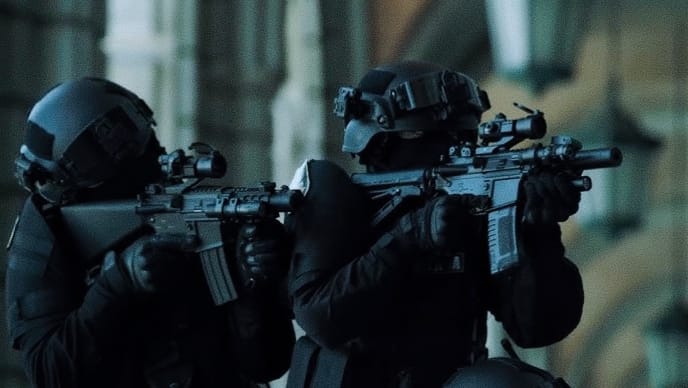Assam Chief Minister Himanta Biswa Sarma strongly criticized West Bengal Chief Minister Mamata Banerjee following her comments regarding Prime Minister Narendra Modi and the BJP’s involvement in the unrest in Bengal. Mamta Banerjee had accused Modi of using the BJP to incite violence in West Bengal over the tragic rape and murder of a trainee doctor, leading to a BJP-sponsored 12-hour shutdown marked by instances of violence and public disruption across the state.
Sarma responded sharply to Banerjee’s remarks, condemning her for what he described as spreading divisive politics and unrest throughout India. He stated, “Don’t show us red eyes. Don’t try to set India on fire with your politics of failure. It does not suit you to speak divisive language,” reflecting his disapproval of Banerjee’s approach to the situation. Sarma’s criticism came after Banerjee publicly blamed the BJP and Modi for the violence that erupted during the bandh.
Speaking at the foundation day event of the Trinamool Congress’s (TMC) student wing, Mamata Banerjee addressed the unrest in Bengal, drawing parallels between the situation in West Bengal and the protests in Bangladesh. She expressed her admiration for Bangladesh, highlighting the shared culture and language between Bengal and the neighboring country, but emphasized that Bangladesh is a separate nation. Banerjee accused Modi of attempting to destabilize Bengal through the actions of his party members, warning that if Bengal were to burn, the flames would spread to Assam, the North-East, Uttar Pradesh, Bihar, Jharkhand, Odisha, and Delhi as well. Her rhetoric underscored the potential for widespread unrest if the current tensions in West Bengal were not addressed.
Banerjee’s remarks also included a call to update her previous slogan, ‘badla noy, badal chai’ (no revenge, only change), to better reflect the evolving political landscape and the challenges facing her state. This shift in messaging highlights her recognition of the changing dynamics in Bengal and her desire to adapt her leadership to these new realities. Her comments came at a time when tensions in West Bengal were high, following the bandh and the violence that accompanied it.
The bandh itself was marked by significant disruption and instances of violence across West Bengal. In Bhatpara, located in North 24 Parganas district, the most severe clash occurred when BJP leaders claimed that TMC supporters fired shots at the car of a local BJP leader, Priyangu Pandey. Although Pandey was unharmed, his driver and a party worker were injured and had to be hospitalized. This incident exemplifies the intense political rivalry and violence that has come to characterize the relationship between the TMC and BJP in West Bengal.
Throughout the day, several prominent BJP leaders were detained as they attempted to enforce the bandh. These included former MPs Roopa Ganguly and Locket Chatterjee, Rajya Sabha MP Samik Bhattacharya, and MLA Agnimitra Paul. Their detentions highlight the state government’s efforts to maintain order during the shutdown, even as the BJP accused the administration of mishandling the situation.
In Kolkata, the bandh had a mixed impact on daily life. Public transport was significantly reduced, with many private vehicles staying off the roads. While markets and shops remained largely open, schools and offices experienced lower attendance. This reflects the divided response to the bandh within the city, where some residents supported the shutdown, while others chose to continue with their daily routines.
In the northern parts of West Bengal, the bandh led to further disruptions, particularly in railway services. BJP workers blocked tracks at several stations, causing delays in suburban train services. Similar disruptions were reported in South 24 Parganas, Hooghly, Nadia, and Murshidabad districts, further compounding the impact of the bandh on the state’s transportation network.
The bandh and the violence surrounding it have drawn widespread criticism, with many questioning the effectiveness of such protests in addressing the underlying issues. The BJP’s decision to call for the shutdown, coupled with the ensuing violence, has led to accusations that the party is attempting to destabilize the state government and create chaos in West Bengal. On the other hand, the TMC has been accused of failing to adequately address the concerns of its citizens and mishandling the situation.
As tensions continue to simmer in West Bengal, the political landscape remains highly charged. The ongoing conflict between the TMC and BJP is emblematic of the broader political struggles taking place across India, where issues of governance, public order, and political rivalry frequently intersect. The situation in West Bengal serves as a reminder of the challenges facing Indian democracy, where the actions of political leaders can have far-reaching consequences for the stability and unity of the nation.
In conclusion, the events in West Bengal highlight the intense political rivalry between the TMC and BJP, as well as the broader implications of this conflict for India as a whole. The rhetoric and actions of leaders like Mamata Banerjee and Himanta Biswa Sarma reflect the deep divisions within the country, as well as the challenges of maintaining peace and order in the face of such divisions. As the situation continues to evolve, the need for dialogue and reconciliation remains paramount, both in West Bengal and across India.




